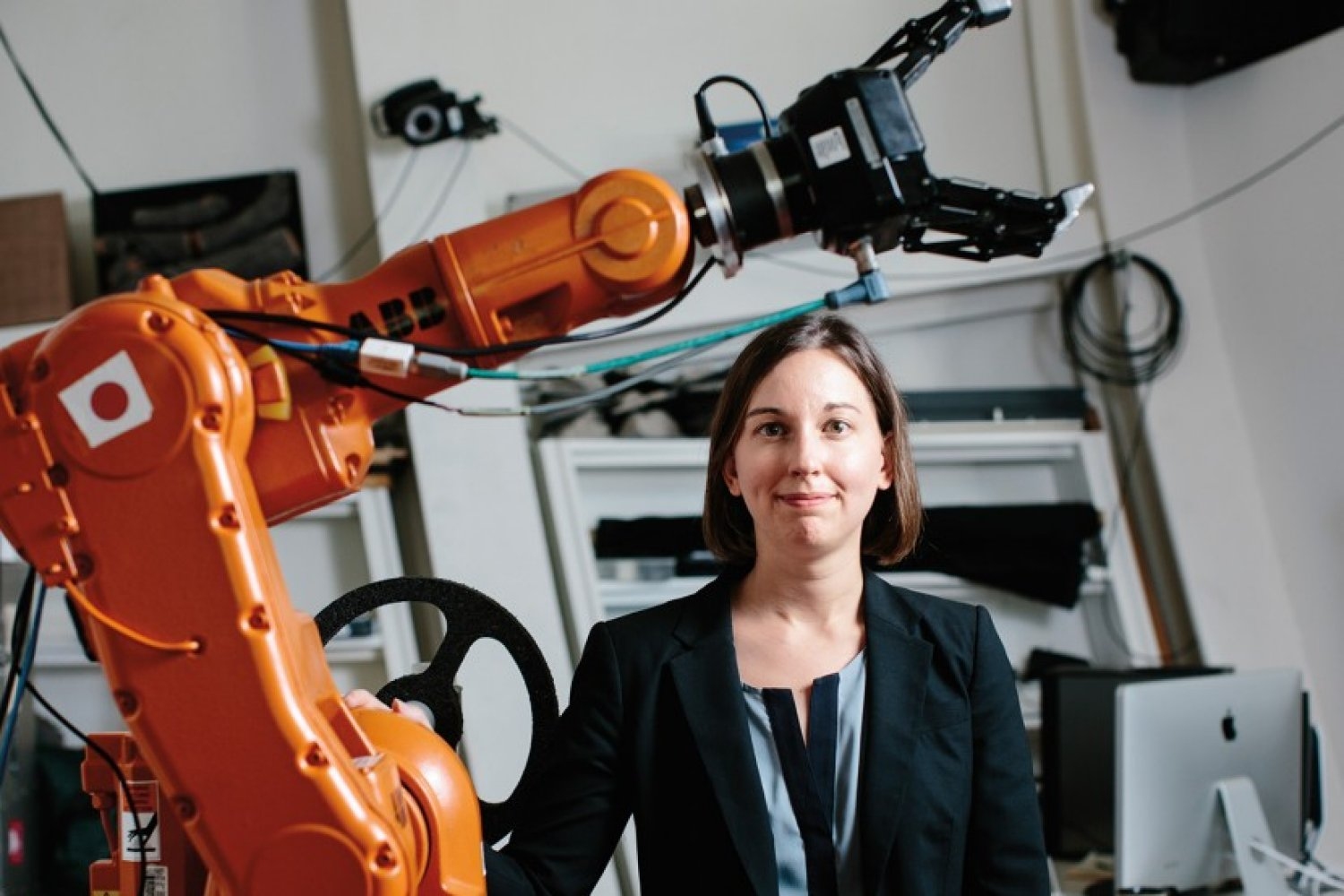
Julie Shah ’04, SM ’06, PhD ’11, the H.N. Slater Professor in Aeronautics and Astronautics, has been named the new head of the Department of Aeronautics and Astronautics (AeroAstro), effective May 1.
“Julie brings an exceptional record of visionary and interdisciplinary leadership to this role. She has made substantial technical contributions in the field of robotics and AI, particularly as it relates to the future of work, and has bridged important gaps in the social, ethical, and economic implications of AI and computing,” says Anantha Chandrakasan, MIT’s chief innovation and strategy officer, dean of the School of Engineering, and the Vannevar Bush Professor of Electrical Engineering and Computer Science.
In addition to her role as a faculty member in AeroAstro, Shah served as associate dean of Social and Ethical Responsibilities of Computing in the MIT Schwarzman College of Computing from 2019 to 2022, helping launch a coordinated curriculum that engages more than 2,000 students a year at the Institute. She currently directs the Interactive Robotics Group in MIT’s Computer Science and Artificial Intelligence Lab (CSAIL), and MIT’s Industrial Performance Center.
Shah and her team at the Interactive Robotics Group conduct research that aims to imagine the future of work by designing collaborative robot teammates that enhance human capability. She is expanding the use of human cognitive models for artificial intelligence and has translated her work to manufacturing assembly lines, health-care applications, transportation, and defense. In 2020, Shah co-authored the popular book “What to Expect When You’re Expecting Robots,” which explores the future of human-robot collaboration.
As an expert on how humans and robots interact in the workforce, Shah was named co-director of the Work of the Future Initiative, a successor group of MIT’s Task Force on the Work of the Future, alongside Ben Armstrong, executive director and research scientist at MIT’s Industrial Performance Center. In March of this year, Shah was named a co-leader of the Working Group on Generative AI and the Work of the Future, alongside Armstrong and Kate Kellogg, the David J. McGrath Jr. Professor of Management and Innovation. The group is examining how generative AI tools can contribute to higher-quality jobs and inclusive access to the latest technologies across sectors.
Shah’s contributions as both a researcher and educator have been recognized with many awards and honors throughout her career. She was named an associate fellow of the American Institute of Aeronautics and Astronautics (AIAA) in 2017, and in 2018 she was the recipient of the IEEE Robotics and Automation Society Academic Early Career Award. Shah was also named a Bisplinghoff Faculty Fellow, was named to MIT Technology Review’s TR35 List, and received an NSF Faculty Early Career Development Award. In 2013, her work on human-robot collaboration was included on MIT Technology Review’s list of 10 Breakthrough Technologies.
In January 2024, she was appointed to the first-ever AIAA Aerospace Artificial Intelligence Advisory Group, which was founded “to advance the appropriate use of AI technology particularly in aeronautics, aerospace R&D, and space.” Shah currently serves as editor-in-chief of Foundations and Trends in Robotics, as an editorial board member of the AIAA Progress Series, and as an executive council member of the Association for the Advancement of Artificial Intelligence.
A dedicated educator, Shah has been recognized for her collaborative and supportive approach as a mentor. She was honored by graduate students as “Committed to Caring” (C2C) in 2019. For the past 10 years, she has served as an advocate, community steward, and mentor for students in her role as head of house of the Sidney Pacific Graduate Community.
Shah received her bachelor’s and master’s degrees in aeronautical and astronautical engineering, and her PhD in autonomous systems, all from MIT. After receiving her doctoral degree, she joined Boeing as a postdoc, before returning to MIT in 2011 as a faculty member.
Shah succeeds Professor Steven Barrett, who has led AeroAstro as both interim department head and then department head since May 2023.


